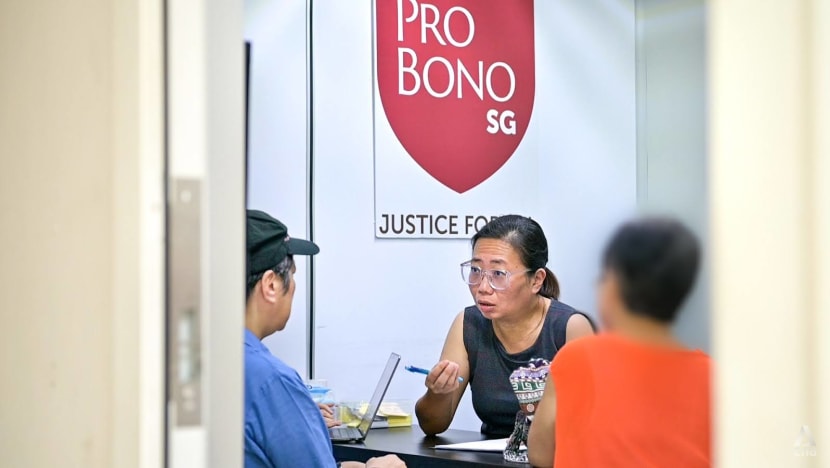‘Last line of defence’: Meet the ‘$1 lawyers’ who provide justice for all
More young lawyers want to make a full-time career in giving free legal advice and representation, says charity Pro Bono SG, which has an office on the grounds of a temple. This, even as some cases are greeted with brickbats.
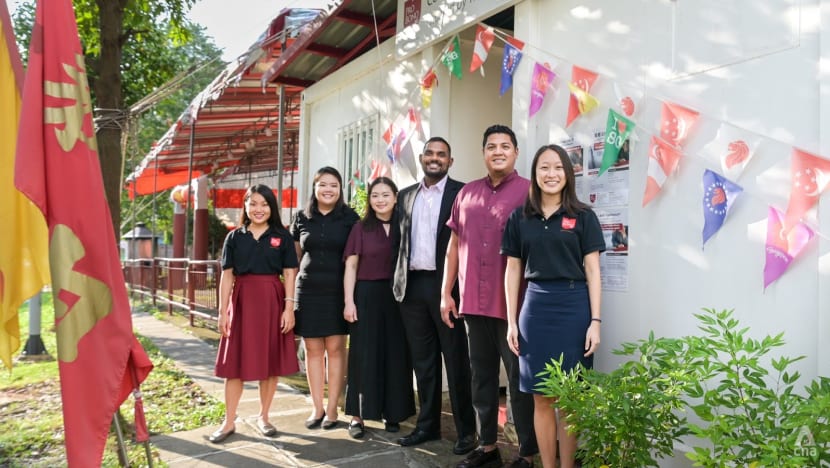
Pro Bono SG deputy head of representation Pramnath Vijayakumar (third from right) and head of strategy and impact evaluation Cai Chengying (right) with other lawyers from the charity outside their office in front of a temple. (Photo: Gavin Sim/CNA)

This audio is generated by an AI tool.
SINGAPORE: A few months after Sadhana Rai started her new job as a full-time pro bono lawyer, she received a phone call from her father, who sounded “extremely frustrated”.
“You’re representing all these rapists and criminals. What are you doing?” she recalls him asking. “Why can’t you take on other types of cases?”
She had just given up a career in private practice to do criminal defence work at registered charity Pro Bono SG. And her father noticed her name appearing in the newspapers.
His call surprised her, because her parents had been “incredibly supportive” of her new role.
“I think it’s one thing to be supportive of my career choice in the abstract — you’re doing pro bono work, it’s good that you’re giving back to the community,” she reflects.
“Then when you look at the specifics, … it can be hard to swallow.”
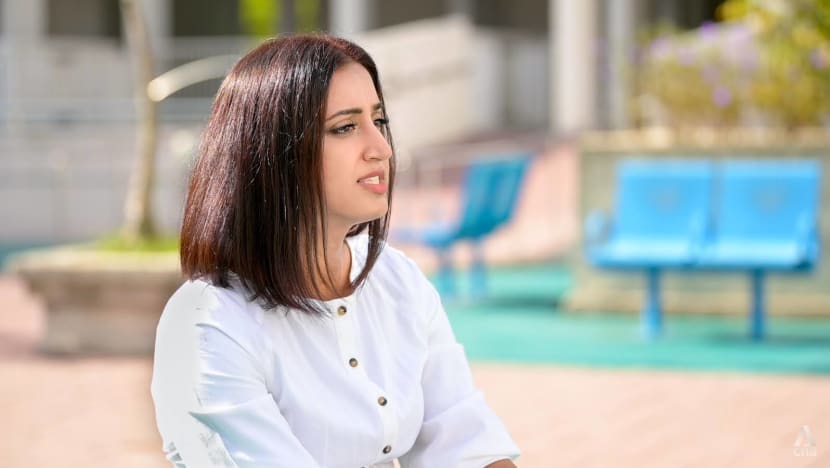
In the 10 years that Rai, 37, has been at Pro Bono SG, she and her team have defended those accused of the most heinous crimes, among others.
She has been tried in the court of public opinion when she took on cases that had gained notoriety, such as the case of the toddler whose remains were found in a pot in a Housing and Development Board flat.
But the work gives her purpose. Every day, she says, she is “extremely excited to come to work”.
Now the head of representation at Pro Bono SG, she works with a team of lawyers including not only those who have left private practice, but also those fresh out of law school.
WATCH: Young pro bono lawyers — Why we gave up private practice to give legal advice for free (19:18)
It may not be the conventional thing for young lawyers to do, but more of them are starting to see full-time pro bono work as a viable career.
‘$1 LAWYERS’ = HALF-HEARTED WORK?
Pro Bono SG provides free legal services for the underprivileged. Lawyers joining the charity can apply either through the community law or criminal case route.
Its clients are mainly people who cannot afford or do not know how to get legal help any other way. Sometimes they are on the verge of giving up hope.
Danial (not his real name), for example, had been held on remand for nearly three years while waiting for his case to be tried in court. His charges included three counts of sexual assault, and he could not afford a lawyer.
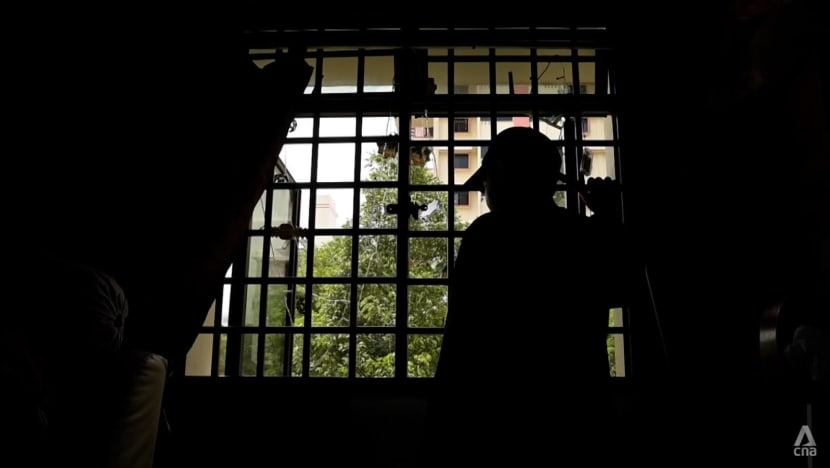
Some friends in prison told him about Pro Bono SG. “(Their) exact words were ‘S$1 lawyer,’” says Danial, who thought it was “too good to be true” at the time.
Some others in prison said his pro bono lawyer would only “go halfway” for him, he adds.
But he applied anyway, and when Rai and Pramnath, the charity’s deputy head of representation, took on his case last year, they assured him that they would do their best.
“They didn’t sugar-coat (it),” he recalls. “They only told me one thing: If I was being truthful, then hope for the best.”
He was “super scared” when he first stepped into court. But as he witnessed his lawyers’ efforts, he could tell they had gone all the way, he attests.
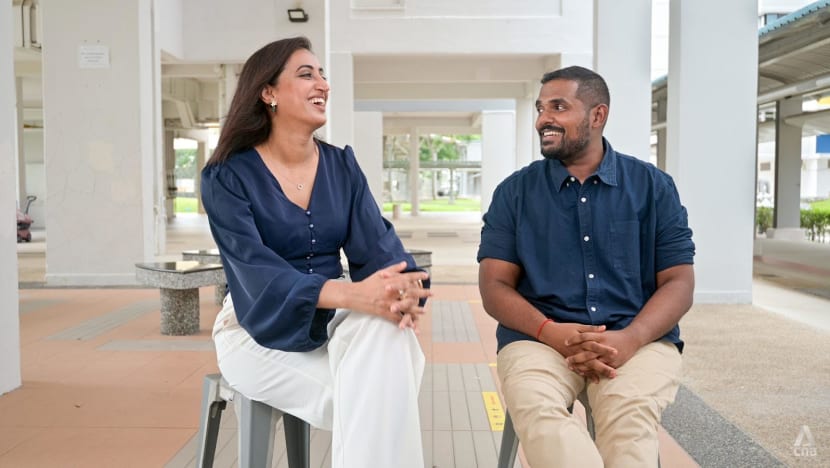
The term “$1 lawyer”, says Rai, has its origins in the Legal Aid Bureau’s registration fee, which used to be S$1 before it was removed. She jokes that “$2 lawyers” is a more accurate term now, thanks to inflation.
But the misconception that a pro-bono lawyer will not work as hard as a paid lawyer is something she feels strongly about and is working to debunk.
“I’d just like to say that that’s absolutely not true,” she says. “I’m answerable to the court if I don’t put (in) a performance that meets the standards of the court.”
In the end, Danial got a discharge not amounting to acquittal. This means he is not subject to prosecution for now. He could, however, be retried should new evidence emerge.
“I almost gave up because I had no confidence,” he says. “When Sadh and Pram came (in), I took it as a sign … that I could fight this case.”
FACING DOWN PUBLIC OUTRAGE
Then there are the cases that result in public disapprobation of the lawyers.
One such instance for Rai was the case of Umaisyah, who was two years old when she died in 2014. The toddler’s charred remains were found in a metal pot only five years later.
Last year, the toddler’s father was charged with culpable homicide, and her mother with child abuse and perversion of justice. When the mother applied to Pro Bono SG for legal aid, Rai and Pramnath took up her case.
“When I first stood up before the judge, … I don’t think there was a single person in that room who’d looked at the situation and thought she deserved pity,” recalls Rai.
“The discussion that took place around me was: Why would a mother allow this to happen to her child?”
It was up to the lawyers to prepare a mitigation plea, to highlight possible mitigating factors in the mother’s offences that could help reduce the sentence.
In the end, they told the court about her own history of being abused, allegedly at the hands of her stepfather and her husband.
Rai later read comments like, “these lawyers will just say anything” to get their clients’ sentences reduced. Some comments degenerated into personal attacks.
“I (had) people questioning whether I had the maternal instinct in me — how (could) I represent someone like that?” she recalls. “You could tell that the public was very outraged at (the way) a child had been treated and desecrated.”
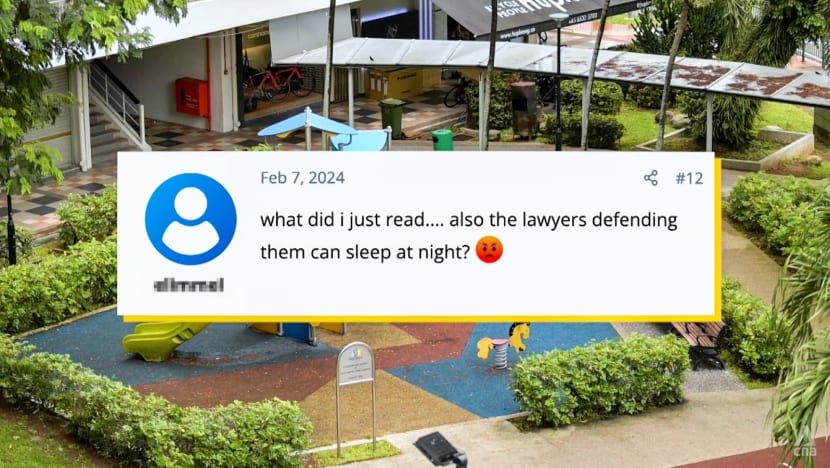
But she stresses that her job as defence counsel is not to judge her client. So when she stood up in court for the mother, she did not think she was “on the wrong side of the room”.
“My job is to advocate,” she said. “If anything, I was on the side that needed me most.”
It was during her preparation for this case that she had a “breakthrough moment” with her father.
Nine years after that call from him, she was on the phone with him, sharing the difficulty of coming up with arguments for the case, when he told her that the job she was doing was an important one.
“It’s important for you to speak up on her behalf, because if you don’t do it, then who will?” she recalls him saying.
It was quite clear to her that her father understood the value of her work. “I know it took nine years for him to get there, but I’m sure that others can get there as well, hopefully … faster,” she says.
UNCONVENTIONAL LAW OFFICE TOO
Besides criminal cases, Pro Bono SG also takes on matters such as civil and family law, including divorce and domestic violence cases.
And with its mission to bring pro bono legal services to the heartlands, some of its lawyers work in one of Singapore’s most unconventional law offices: Two storage containers located in front of Tian De Temple in Hougang.
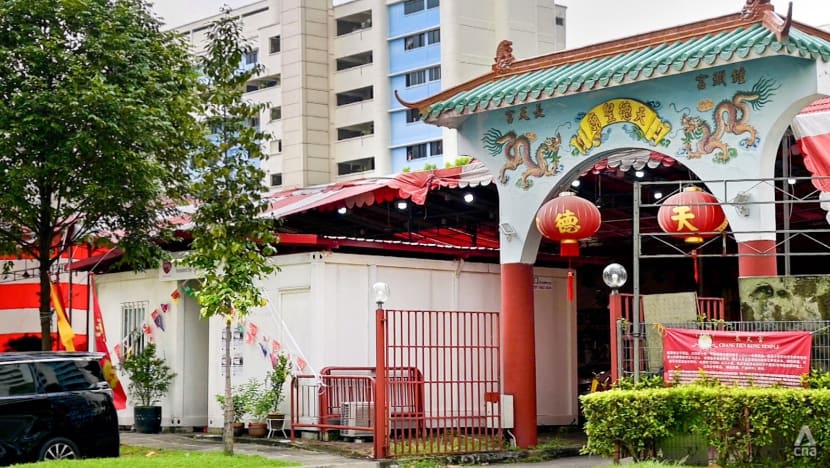
This is one of the charity’s two community law centres. A coffee shop across the road serves as an informal waiting area for clients, while a repurposed karaoke booth is used for online meetings and court calls.
It might seem a strange setting for a law office — temple secretary Steven Goh says curious passers-by will stop and ask about the containers — but it serves its purpose.
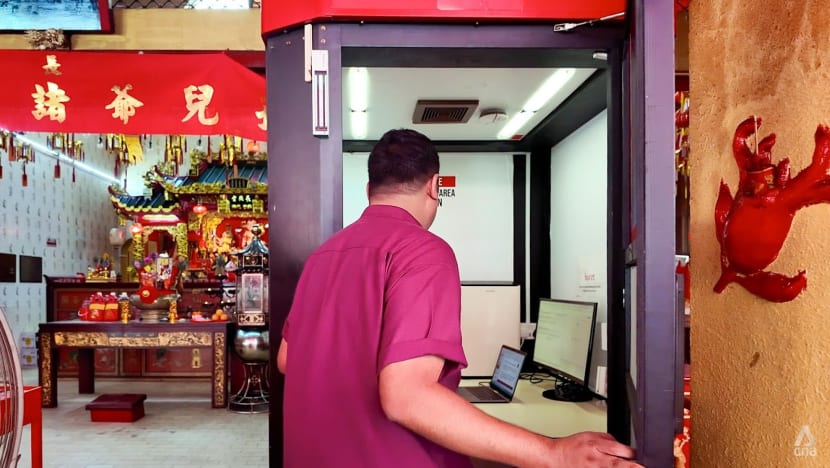
The centre is within 5 kilometres of at least 40 social service providers, which it can work with to serve the same residents in need. And being in front of a temple can increase the centre’s visibility for these residents.
“Access to justice isn’t just a theoretical concept; you need physical access to justice,” says Cai Chengying, Pro Bono SG’s head of strategy and impact evaluation.
People need to be able to see you in order to know about your presence and to come forward to access the services.”
The temple is a place where there is a “natural footfall (of) the very service users that we’re hoping to attract”, the 36-year-old adds, whilst stressing that the charity’s clients come from all races and religions.
“People who might be a bit more unfamiliar with using technology to access legal services; people who may not be very proficient in English and who may need that extra help to connect to legal services.
“We even have some clients without access to a mobile phone or … without a data plan, and they can’t scan QR codes and access online forms so easily.”
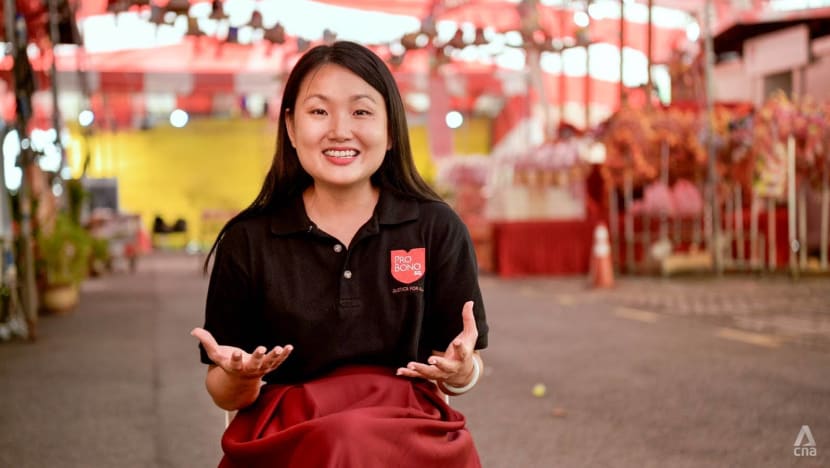
There are two state-run services for those who need free or low-cost legal representation: the Legal Aid Bureau (LAB), which handles civil and family law matters; and the Public Defender’s Office (PDO), which handles criminal matters not involving the death penalty.
But these services are for Singaporeans and permanent residents. And if applicants fail to meet the qualification criteria, they can try applying for legal aid with Pro Bono SG, which has its own means and merit tests.
The LAB and PDO are also located in the city centre, which may be a challenging location to travel to for some. Pro Bono SG’s headquarters, too, is centrally located in the State Courts.
“We’ve had clients who felt intimidated by the State Courts building, with the scanners and the security,” says Cai.
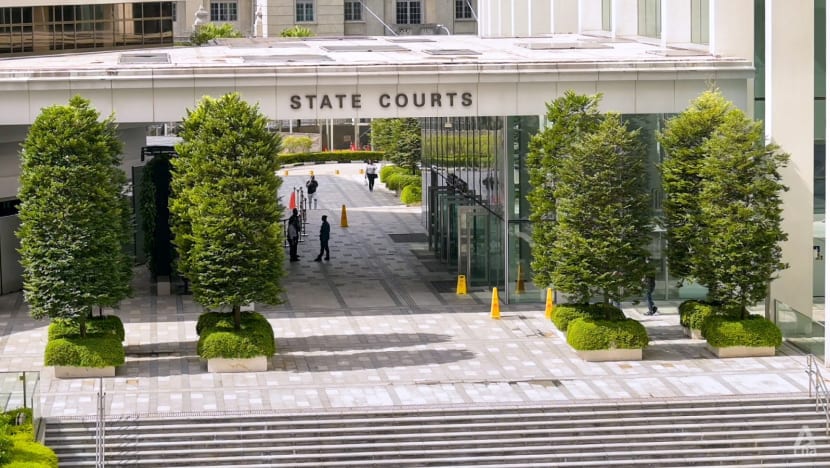
Others have had to borrow money from the charity to take a bus home from the State Courts, or cycle five hours just to meet a lawyer there.
SERVING THE COMMUNITY
At its two community law centres — the second is in Woodlands, opposite a Chinese clinic operated by the Realm of Tranquility charity — Pro Bono SG has seen nearly 800 cases since last year.
While some clients hear about its services by word of mouth, about half of the Hougang centre’s clients, for example, are referred by those working in social services who can attest to the benefits of working with Pro Bono SG.
Social worker Anthea Chua cites the case of an elderly man who wanted to apply for a protection order against one of his family members. He represented himself in court the first time he applied, and the application was rejected.
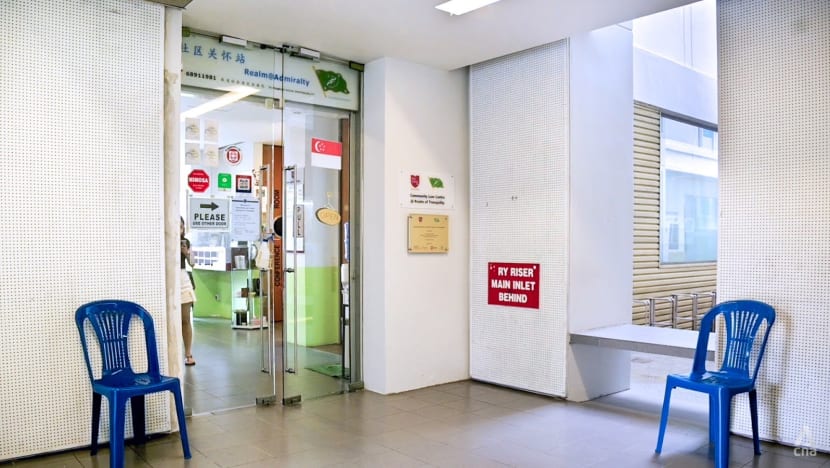
“He wasn’t very confident (and) didn’t really know what to do during the court mention,” recalls Chua, citing the man’s poor command of English and unfamiliarity with online systems.
“I myself am not an expert in the legal area, so (what) I could do was just to help him translate what I saw in emails or online.”
In his second attempt, he went to the LAB but did not meet its income criteria, according to Chua, an assistant senior counsellor with the Methodist Welfare Services Covenant Family Service Centre.
That was when she suggested the Hougang community law centre to him.
Lawyers there assessed his case and offered guidance on the next steps, the documents he needed at each step and explained the legalese involved.
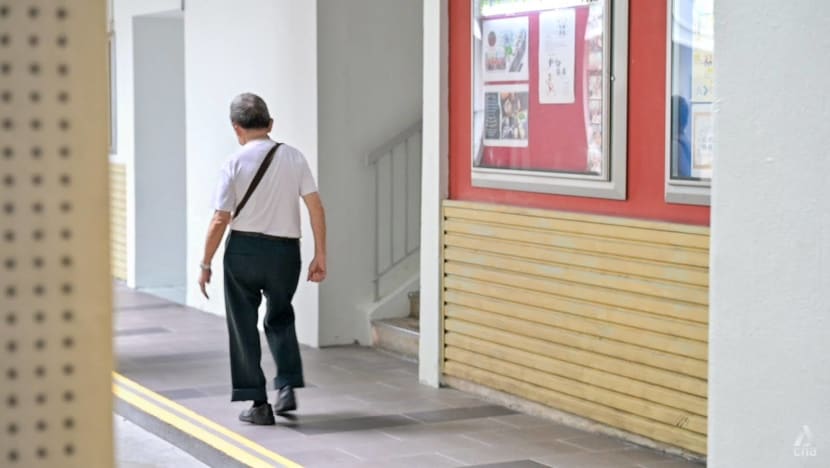
“With the knowledge and the skills that Pro Bono SG (gave) us, I could coach him,” she said. “When he went to court on his own, he felt more confident.”
For the lawyers at the two community law centres, this is how their work there can serve the community in impactful ways.
Another client, a retiree, initially received an important-looking letter with a government stamp. Unable to read English and with only primary school education, he got a friend to translate the letter for him.
It turned out that his estranged wife wanted a divorce. But he did not know where to get legal help and worried that he would have to contest the terms in court without representation.
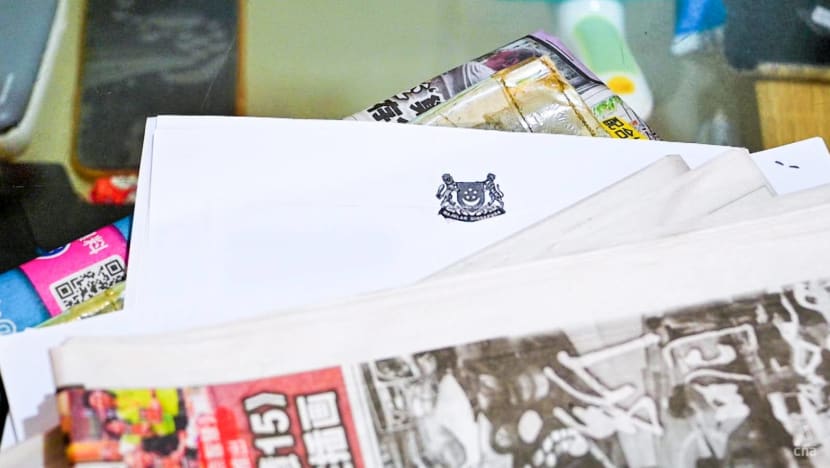
“I was against some of the proposed terms of divorce, such as the maintenance payment and custody issues,” he shares. “But what was I to do? I couldn’t do much without a lawyer.”
His friend took him to Pro Bono SG’s Hougang community law centre, where he met lawyer Goh Qian Hui, who not only translated the legal terms into Mandarin but also explained what they meant.
Pro Bono SG found that he qualified for legal aid from the LAB, who then assigned him a lawyer. Although his legal proceedings are still ongoing, he is relieved to have a lawyer helping him with the process.
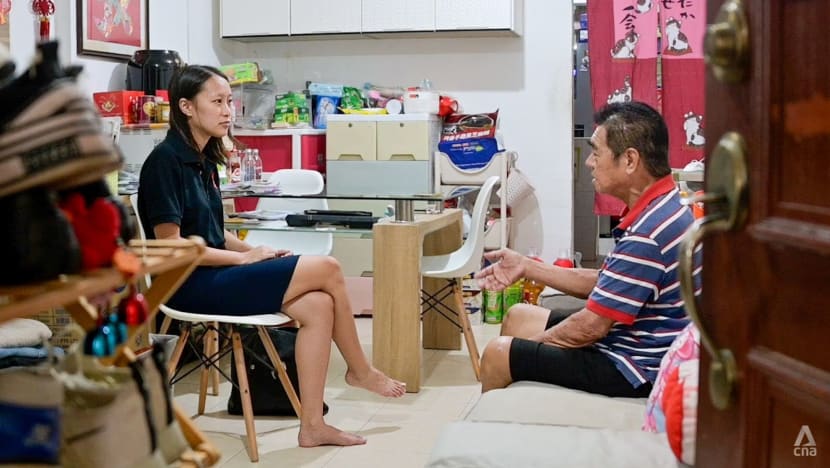
DRIVEN BY PURPOSE
For pro bono lawyers like Goh, it is quite a different work experience from the norm.
The 30-year-old is usually at one of the two community law centres, attending to walk-in clients, collaborating with social workers, helping with translations and even paying home visits to clients who cannot physically make it to the centres. She also goes to court when needed.
While she had always wanted to be in the social service sector, her choice was a surprise to her peers coming out of law school, she found.
“Some of (my friends) were quite surprised that such a position even existed, that you could be a full-time pro bono lawyer,” she recalls.
“The general school of thought is that you should go into private practice and get as much litigation experience (as possible) before deciding (on) your next step. … For most of them, it’d be going in-house to do corporate work.”
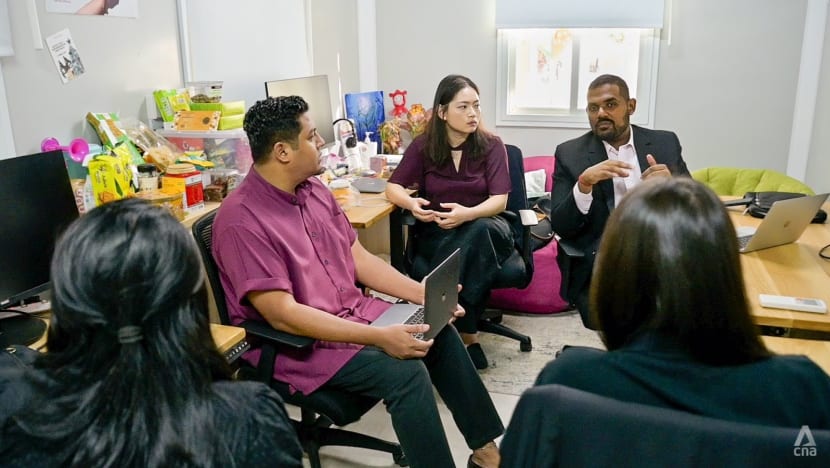
For those like her, Pro Bono SG offers a one-year fellowship programme in the community law centre team or the Criminal Legal Aid Scheme (Clas).
The latter focuses on criminal defence and “isn’t for the faint-hearted”, says Clas fellow Benedict Koh. “(From) very early on, we’re put at the forefront of many of our matters.”
Fellows may take charge of client meetings and even present oral arguments in court, which is typically reserved for more senior lawyers. They are mentored by their senior lawyers, who discuss case strategies with them and follow them to court.
Just two or three months into Koh’s fellowship — and slightly over two years after law school — he was roped in to help with the Umaisyah case, including helping to draft the mitigation plea.
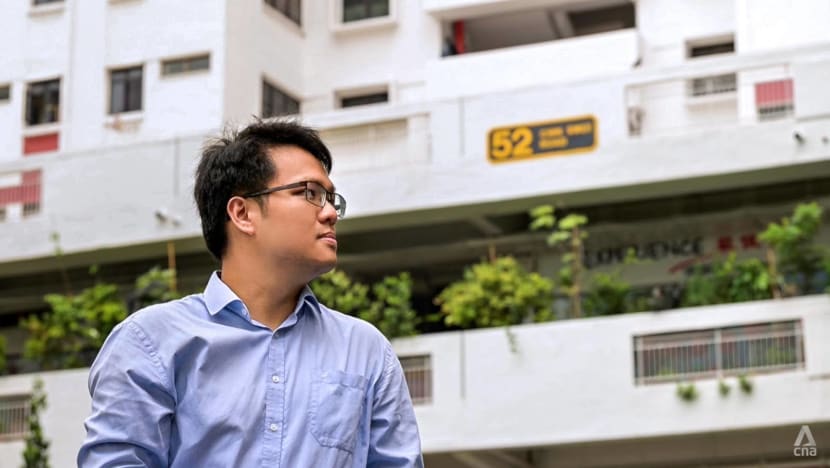
He remembers wondering whether he was “good enough” to represent the client in a case of “such great public interest”. But he was grateful for the trust placed in him.
“It also reminded me of the importance of defence counsel,” he says. “Because no matter how heinous an offence may be, every person deserves their day in court and … the right to legal representation.
We are, in that sense, the last line of defence.”
Pro Bono SG’s operating expenditure is largely covered by government grants, but it also raises funds — for example from foundations, law firms, other benefactors and the general public — for remaining expenses.
And it has received “a lot more” applications from young lawyers fresh out of school, “who want to do this as their first job”, says Rai, without disclosing further details.
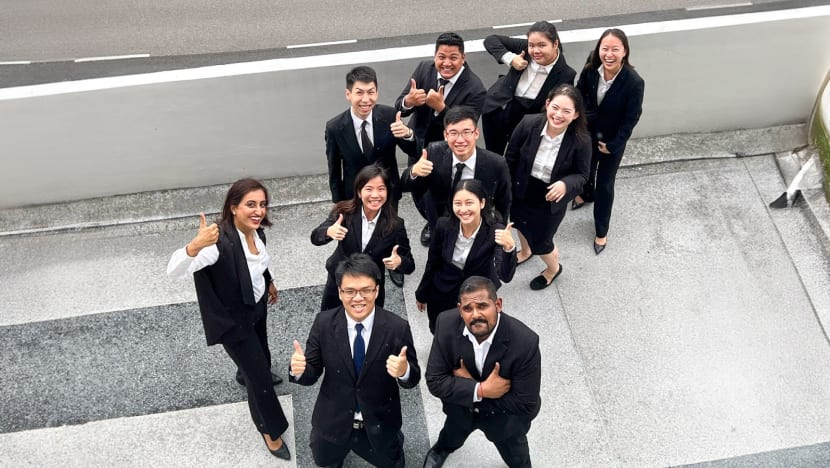
This could be a generational shift, she believes. “We’re looking at a generation of lawyers … (who) are genuinely asking themselves important questions about where they’re going and what their purpose is.”
Having felt “extremely burnt out” in private practice, and after a decade of full-time pro bono work, she is confident that she has found hers.
“I work the same long hours. … I had to take a pay cut. I obviously don’t get on all these ‘40 under-40 top lawyers’ (lists) reported in these legal newsletters,” says Rai, who has friends who receive such accolades.
“Sometimes … I think, ‘Hey, it’s so nice to be able to get that.’ But then I’m constantly reminded that I’m doing something that means a lot to me.
